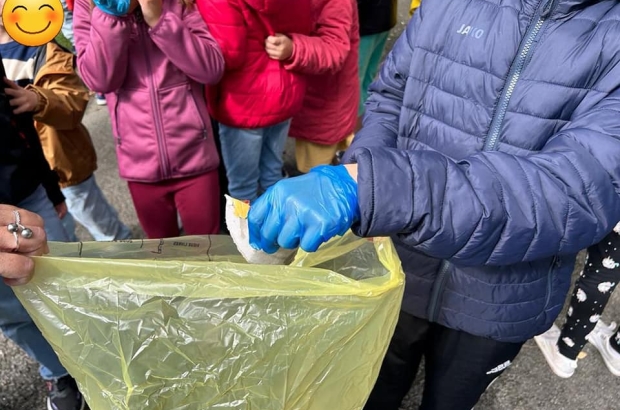- Daily & Weekly newsletters
- Buy & download The Bulletin
- Comment on our articles
More Brussels schools rewarded for environmental commitment
Some 24 Brussels schools have been rewarded with the Eco-School label – an award launched in 1994 to recognise commitment to environmental education projects and improved environmental management.
The label, valid for two years, is set up as part of an educational scheme financed and co-ordinated by Bruxelles Environnement, which in collaboration with other associations, has integrated the question of ‘ecological transition’ and environmental awareness in schools since 1998.
The certified schools that have been newly announced include Blankedelle in Auderghem, Les Peupliers primary school in Anderlecht, nursery school n°2 in Schaerbeek and, the El Hikma La Sagesse institute in Forest.
Out of these 24 establishments, 13 had their label renewed while 11 received it for the first time. They join 16 other schools that are also labelled.
Given the urgency of climate change and the increased action from young people, notably the recent climate marches, more schools are acting on their level. A growing number of teaching teams are tackling the subject with their students, according to Bruxelles Environnement.
Actions implemented include forming assemblies of ‘eco-delegates’, providing zero-waste snacks, installing bicycle parks, energy-saving measures, compost areas and outdoor classes.
“This label allows schools to make all their environmental projects sustainable,” said Bruxelles Environnement’s Roxane Keunings at the award ceremony at Le Karrenberg communal school in Watermael-Boitsfort, itself an Eco school.
“Thanks to the support of the [environmental association] Coren asbl and a subsidy of up to €2,000, schools can assess their environmental record, decide on priority actions and put them into practice,” Keunings said.
She said that every level of the school - from student to management, technical staff to parents - should be involved: “An Eco School is one that chooses to be part of the ecological transition and we are very proud to see 40 of them in Brussels.”
Alain Maron, Brussels minister for climate change, environment, energy and participatory democracy, added: “I am delighted to see that more and more Brussels schools are taking part in this transition, notably by adopting the Eco-School label.
"Our schools welcome 250,000 pupils every day, on top of supporting staff. Helping them to adopt positive measures for the environment is therefore essential, not only to fight against climate change and declining biodiversity, but also to offer positive perspectives for our young people’s future."
Le Karrenberg’s head teacher, Josiane Lenglez, also welcomed the project: “Snack boxes with fruit and vegetables and water bottles have entered the school bags.
"Sorting has become the rule and compost bins have flourished in the playground. That allows us to boost our vegetable garden and eat delicious fruit and vegetables.
“And don’t forget sustainable mobility. Children who want to have been able to get their pedestrian and cycling certificates and we walk to the swimming pool. It’s a group dynamic, each class has been made responsible and this is what has made these projects successful.”
Environmental projects are not limited to Brussels, but are common in Wallonia and in Flanders. For example, next school year (2024-2025) a common course on climate change will be offered to all Flemish secondary schools with the aim of bridging the gap between education and science.
At an international level, the Eco-School label was created in 1994 by one of the world’s largest environment education organisations, with more than 100 member organisations in 81 countries, the 1981-created Foundation for Environmental Education (FEE). This label encourages more than 60,000 schools in 73 countries to put in place environmental schemes.
In Brussels, Bruxelles Environnement is involved in numerous environmental projects in schools, including Re-creation, that aims to create greener playgrounds, actions on sustainable food and projects looking at noise pollution or how to save water.
The association helps teachers too, with educational dossiers and special training including the ‘Bubble’ network, set up in 2013 and now numbering some 1,300 staff.
Finally, the open-air classes programme aims to reconnect all young Brussels children with nature.

















